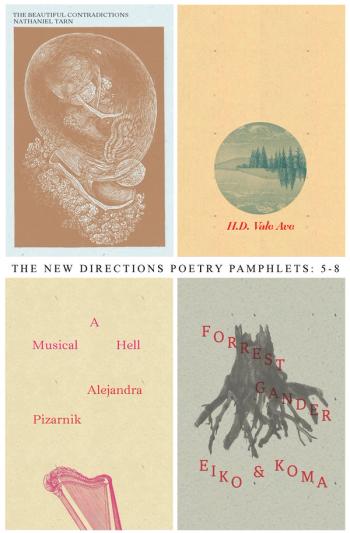Nathaniel Tarn
Nathaniel Tarn (1928–2024) was an American poet, essayist, anthropologist, and translator. He lived in Paris until age 7, then in Belgium (Lycée d’Anvers) until age 11. Tarn graduated in history and English as a Scholar of King’s College, Cambridge. He returned to Paris and, after some journalism and radio work, discovered anthropology at the Musée de l’Homme, the Ecole des Hautes Etudes and the Collège de France. A Fulbright grant took him to Yale and the University of Chicago, where Robert Redfield sent him to Guatemala for his fieldwork that earned him his doctorate. He completed his post-doctoral work at the London School of Economics. In 1958, a grant from the Rockefeller Foundation sent him to Myanmar after which he became Lecturer in South East Asian Anthropology at the School of Oriental and African Studies of the University of London (1960–1967).
Tarn published his first volume of poetry, Old Savage/Young City, with Jonathan Cape, London and Random House, New York; a translation of Pablo Neruda’s The Heights of Macchu Picchu in 1968 with Cape and Farrar Straus, and began building a new poetry program at Cape. He left anthropology in 1967. From 1967–9, he joined Cape as General Editor of the international series Cape Editions and as a Founding Director of the Cape-Goliard Press, specializing in contemporary American Poetry with emphasis on Charles Olson, Robert Duncan, Louis Zukofsky and their peers and successors. He brought a great many French, other European and Latin American titles to Cape and made many visits to the U.S. as a Cape Editor. In 1970, with a principal interest in the American literary scene, he immigrated to the US as Visiting Professor of Romance Languages, Princeton University, and became a citizen. Later he moved to Rutgers. Since then he has taught English and American Literature, Epic Poetry, Folklore, inter alia at the Universities of SUNY Buffalo, Pennsylvania, Colorado, New Mexico, and Manchuria. He’s read and lectured all over the world: Paris, Heidelberg, Freiburg, Berlin, Rome, Messina, Prague, Budapest, Sydney, Melbourne, and many other places. He has set foot in every state of the US, with an especially long study in Alaska. Extensive travels over the years, to all seven continents, have informed his poetry from the start.
As poet, literary and cultural critic (two volumes: Views from the Weaving Mountain and The Embattled Lyric), translator (he was the first to render Victor Segalen’s Stèles into English, continued work on Neruda, Latin American, and French poets) and editor (with many magazines), Tarn has published some forty books and booklets in his various disciplines including Lyrics for the Bride of God, Ins and Outs of the Forest Rivers, The Beautiful Contradictions, Gondwana and Other Poems, and The Hölderliniae with New Directions. He is also the author of a memoir (Atlantis, an Autoanthropology), a nonfiction account of his fieldwork in the Lake Atitlán region of Guatemala (Scandals in the House of Birds), and a pioneering work of anthropology under his given name Edward Michael Mendelson (Sangha and State in Burma). Tarn has been translated into ten foreign languages. His papers are at Stanford.
In 1985, he took early retirement from his faculty position at Rutgers, settling outside Santa Fe, New Mexico, where he lived for nearly forty years. He died on June 26, 2024, in Hertfordshire, England, less than a week before his ninety-sixth birthday.







